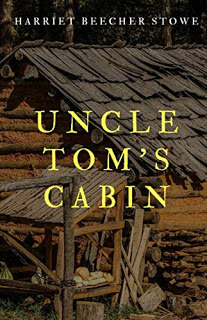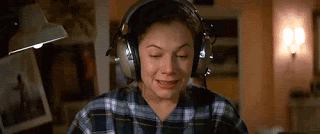The Power of Story
Several years ago I received an email from an organization called The Greater Good.
The email contained an article, by Paul J. Zak, called How Stories Change the Brain.
The article reminded me of a post I had done as a guest here at Seekerville about Wired for Story . This kind of stuff fascinates me, so I read the article and watched the accompanying video. They've stuck with me for years.
Although Wired by Lisa Kron and the Greater Good article by Paul Zak, approach the topic differently, their conclusions are ultimately the same.
Story is vital to our survival. The brain loves story, and stories change our brains.

Have you ever heard the story about Abraham Lincoln meeting Harriet Beecher Stowe, author of Uncle Tom's Cabin, and saying, "So this is the little lady who started this big war."
The anecdote may or may not be true, but that book certainly had a powerful influence.
Unfortunately, words don't always cause change for good. A childhood friend of Adolf Hitler claimed that he drew inspiration for his Aryan nation from Wagner's early opera Rienzi, which in turn was based on a book by Edward Bulwer-Lytton (of It was a dark and stormy night fame)?
Who remembers this scene from Romancing the Stone?
Kathleen Turner evoked the exhilaration writers feel when the writing is working. But I think readers also identify with the scene because they completely understand the sheer power of story to carry you out of your daily life. That's what we're talking about today. Story and the power it wields.

What do we need to know as writers?
Here's a video from Zak's article that shows you how story impacts your brain - literally shows you. It's only 5 minutes long so I encourage you to watch it. Then come back and we'll talk. Go ahead. I'll wait. It's fascinating stuff. (Warning, it's a bit sad - but that's the point!)
The part of the video I found most intriguing was at the 3:35 mark (through 4:31). If you weren't able to watch, through brain imaging, Zak's team was able to show brain activity in response to different types of stories. In response to the story of a father whose son is dying, brains lit up with empathy and understanding of what others are feeling. In response to a story of a father having a fun day at the zoo with his son, nothing lit up. Nothing.
That's powerful imagery!
Imagine readers reading your stories. Do their brains light up in response to what you have written, thus keeping them invested in the story, or is there no response? If nothing is happening in your story, the reader's brain won't tune in. That's hard, cold science. It's also a boring book.
Zak connects this brain imaging to the Dramatic Arc of story.
"This evidence supports the view of some narrative theorists that there is a universal story structure. These scholars claim every engaging story has this structure, called the dramatic arc. It starts with something new and surprising, and increases tension with difficulties that the characters must overcome, often because of some failure or crisis in their past, and then leads to a climax where the characters must look deep inside themselves to overcome the looming crisis, and once this transformation occurs, the story resolves itself. "
There's more, but I don't want to give away the whole story. If you'd like to read the full article, you can find it here.
This is important information for any writer. We need to know how to construct our stories - and that is a post for another day.
I could have just ended this post with the advice to write a really interesting story with lots going on.
But as I was reading the article and thinking about this post, a song kept playing in my head.
It reminded me that for those of us who write inspirational fiction, we have an awesome responsibility because, through our characters and their struggles, we are sharing that story of Jesus and his love.
Deeper into the Greater Good article, Zak goes on to say, "We also tested why stories can motivate us, like the characters in them, to look inside ourselves and make changes to become better people."
The message for authors seems clear - craft a compelling story and you can change people for the better.
How cool is that?
I can't help thinking about one of my favorite Hallmark movies from this past spring - The Nature of Love. No spoilers, but at the end, the heroine has a revelation about the kind of writer she wants to be - she wants her words to matter. She wants to use the power of her words for change.
Let's talk - as readers and writers.
I remember when I first decided to write for Love Inspired. I chose it because when I read those books, I wanted to be a better person.
Readers, do you find books having that effect on you?
Writers, are you conscious of this power when you are crafting your stories? How do you feel about the responsibility you're assuming?
Published on July 21, 2020 21:00
No comments have been added yet.



